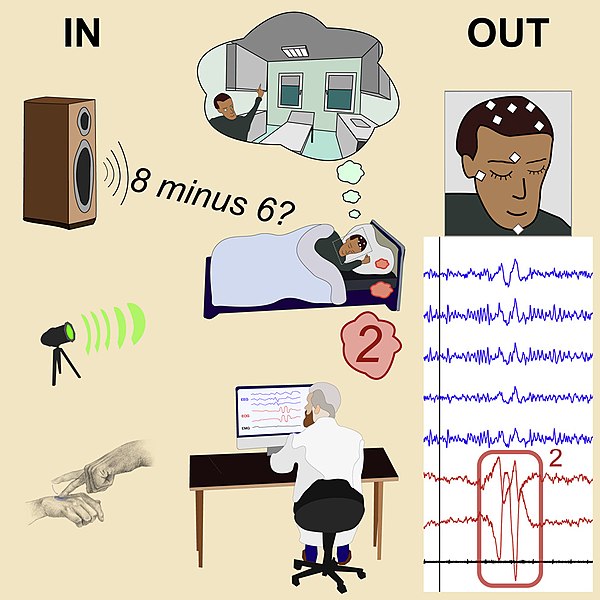In the psychology subfield of oneirology, a lucid dream is a type of dream wherein a person that is dreaming realizes that they are dreaming during their dream. The capacity to have lucid dreams is a trainable cognitive skill. During a lucid dream, the dreamer may gain some amount of volitional control over the dream characters, narrative, or environment, although this control of dream content is not the salient feature of lucid dreaming. An important distinction is that lucid dreaming is a distinct type of dream from other types of dreams such as prelucid dreams and vivid dreams, although prelucid dreams are a precursor to lucid dreams, and lucid dreams are often accompanied with enhanced dream vividness. Lucid dreams are also distinct state from other lucid boundary sleep states such as lucid hypnagogia or lucid hypnopompia.
Frederik van Eeden and Marquis d'Hervey de Saint Denys, pioneers of lucid dreaming
Graphical abstract of "Real-time dialogue between experimenters and dreamers during REM sleep"
In the field of psychology, the subfield of oneirology is the scientific study of dreams. Current research seeks correlations between dreaming and current knowledge about the functions of the brain, as well as an understanding of how the brain works during dreaming as pertains to memory formation and mental disorders. The study of oneirology can be distinguished from dream interpretation in that the aim is to quantitatively study the process of dreams instead of analyzing the meaning behind them.
An artist's imaginary depiction of a dream



